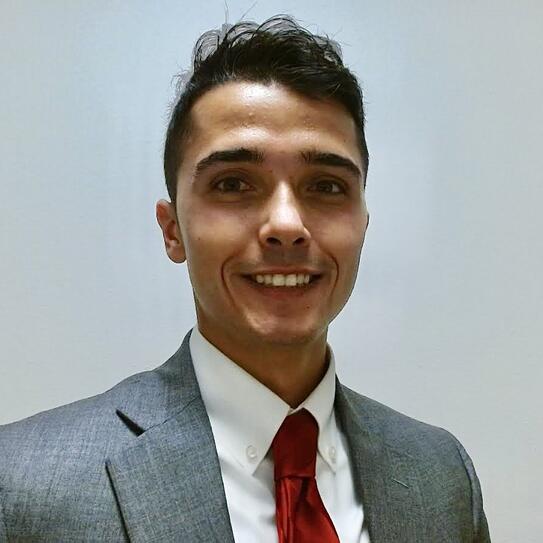John Scalamandre, Jr.

Prior to starting, what were you expecting the program to be like? How was it different than your expectations?
Prior to joining Columbia Business School, I was expecting the program to be more relaxed than my prior role. Turns out, between the Core curriculum, networking with 700 of my new closest friends, recruiting, and all the amazing club opportunities at Columbia Business School, I’m busier than ever (in the best way possible). I’m learning a lot in those Core courses, meeting some of the most motivated, intelligent people I have in my career, and am loving the experience so far.
Why did you choose Columbia Business School?
The School’s location within NYC puts me close to my family and the network I had already developed in New York, and because of the Columbia professors, doing amazing work, like Bruce Usher.
What do you think is your most valuable or differentiating contribution to the Class of 2023?
Prior to our class starting the MBA, two of my classmates and I started a pre-MBA networking committee which held Zoom and in-person events during a five-month period before our first day on campus. I believe that this helped develop some early communities and bonds with our class that are only continuing to strengthen now that we see each other on a daily basis. I am trying to maintain that momentum as we progress through the program and have recently been elected AVP of Events for the Investment Banking Club and intend to run for Executive Board Co-President in the spring.
Which faculty members(s) influenced you the most, and how?
To date, Professors Sandra Matz and Georgia Levenson-Keohane have influenced me the most, although the latter would not know it. Professor Matz was my LEAD professor, and after that first week I remember pausing and relishing in the knowledge that Columbia professors were a caliber above those at my previous university. Professor Levenson-Keohane’s book Capital and the Common Good inspired me to dive deeper into finance – it discusses green bonds, microfinancing and a number of other topics. I hope to enter impact investing eventually and am hoping to be involved with the Microlumbia fund specifically because of her book.
What has been your most memorable experience at Columbia Business School so far?
My most memorable experience at Columbia Business School has been the LEAD course which kicked off the program. The fast-paced nature of the course set the tone for the rest of the semester, and Professor Sandra Matz did a fantastic job of relaying the course material which was geared toward enabling us to be better leaders and to make more conscious decisions.
What was the most challenging part of the program, and how did you handle it?
The most challenging part of the program has been balancing coursework, networking, recruiting, clubs and the balance of what NYC and Columbia Business School have to offer. The sheer volume of opportunities is astounding, and I will be the first to admit I still have to get better at saying "no." So far, the best way to manage all the opportunities provided has been relying on the network of friends I’ve built within the program and maintaining a well-kept calendar!
What advice would you give to a new student coming into the MBA program at Columbia Business School?
Be open to meeting as many of your classmates as possible. There are so many diverse backgrounds, experiences and methods of thinking represented at Columbia. Everyone has something unique that they bring to the table, and there’s always something you can learn.
How will you apply your learnings to a post-COVID world?
When I leave Columbia Business School, I will be entering an associate role within investment banking. I hope to take what Columbia teaches me to work every day. I hope to view business relationships with a different lens, apply a more strategic worldview, and be able to identify disruption in industry before it occurs.
What does the new Manhattanville campus mean to you?
The new campus represents the School’s continued commitment to NYC, to continued excellence, and to the strength of our alumni like Henry Kravis. It also represents a new community for us as students to contribute to. It is important that the student body gives back to this community as it has provided a new home to us – something I hope to play a part in enacting when I run for ExBo co-president in the spring.
Post-MBA career interests?
I will be looking to enter investment banking as an associate. Currently I am interested in a few coverage groups – my experience at KPMG was intentionally quite broad, which is great for my knowledge but makes the decision of what industry to focus on a bit more difficult.